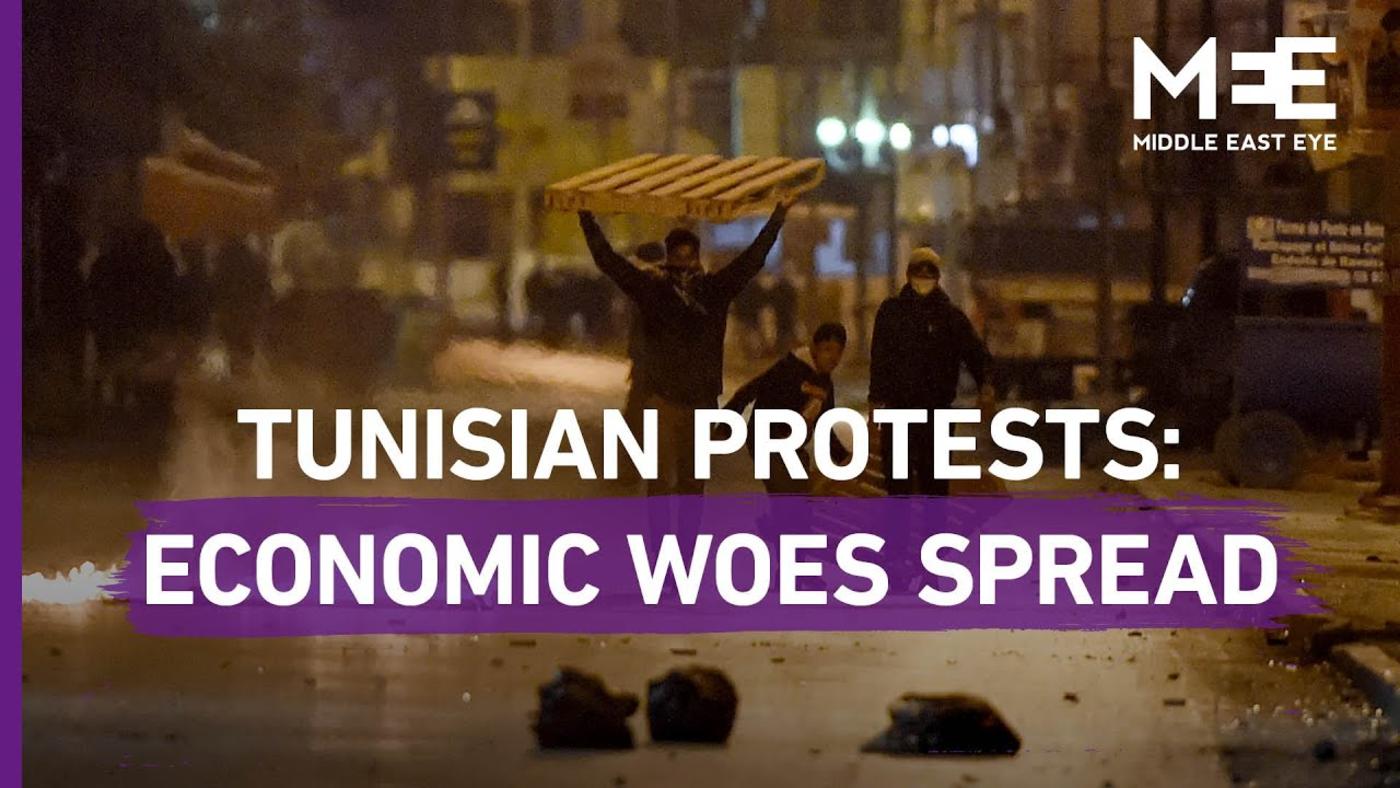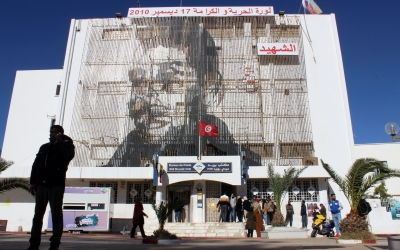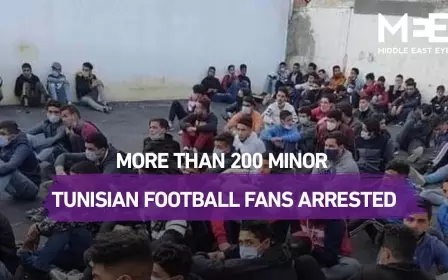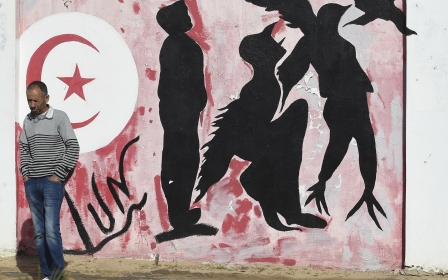Tunisia arrests more than 600 after three days of unrest
Tunisian authorities arrested more than 600 people during a recent bout of social unrest sparked by the country's economic crisis, which has been worsened by the Covid-19 pandemic.
Interior ministry spokesman Khaled Hayouni said on Monday that 632 people had been arrested, notably "groups of people between the ages of 15, 20 and 25 who burned tyres and bins to block the movement of security forces" during protests.
Meanwhile, Amnesty International said the majority of those arrested were minors aged between 14 and 15.
Monday marked the third consecutive night of protests, mostly by young people in working-class districts of several cities.
Some of those arrested were detained for lobbing stones at police and clashing with security forces, leaving two policemen wounded, said Hayouni.
New MEE newsletter: Jerusalem Dispatch
Sign up to get the latest insights and analysis on Israel-Palestine, alongside Turkey Unpacked and other MEE newsletters
"This has nothing to do with protest movements that are guaranteed by the law and the constitution," he said. "Protests take place in broad daylight normally... without any criminal acts involved."
The unrest comes despite a nationwide four-day Covid-19 lockdown that had been declared on Thursday - the day that also marked a decade since demonstrators forced dictator Zine El Abidine Ben Ali from power after 23 years of repressive rule.
Amnesty urged authorities to refrain from using "excessive force" and to uphold the rights of those detained.
"Even when acts of vandalism and looting occur, law enforcement officers must only use force where absolutely necessary and proportionate," said Amnesty's Amna Guellali.
"Nothing gives security forces permission to deploy unnecessary and excessive force, including when they are responding to acts of sporadic violence," she continued.
Tunisia's economic crisis - exacerbated by the coronavirus - sparked rapid inflation and high youth unemployment and has led many people to leave the North African country.
'Police and government corruption'
Protests are currently banned in Tunisia due to Covid-19 and police have been deployed to impose a night-time curfew.
Tensions have exploded as many Tunisians are increasingly angered by poor public services they blame on a failing political class that they say has proven itself unworthy during the ten years that followed the 2011 revolution.
Despite elections, successive governments and a slew of political promises, many continue to denounce the country’s political elite.
In 2020 alone, the Tunisian Forum for Economic and Social Rights (FTDES) recorded 6,500 protests, all of which were motivated by economic, social and environmental demands.
The economy shrank by nine percent last year and consumer prices have spiralled. Meanwhile, one-third of young people are unemployed.
The key tourism sector, already on its knees after a string of deadly militant attacks in 2015, has been dealt a devastating blow by the pandemic.
On Monday, despite the protest ban, dozens again marched in the capital Tunis, chanting slogans denouncing "police and government corruption", police repression, and the rise in poverty.
Police blocked the marchers as they reached the interior ministry, AFP reported.
Defence ministry spokesman Mohamed Zikri said the army had been deployed in several areas due to the unrest, AFP reported.
Meanwhile, messages were posted on social media calling for more protests to take place on Tuesday in Tunis, the central city of Kairouan, and Sfax in the east.
Middle East Eye delivers independent and unrivalled coverage and analysis of the Middle East, North Africa and beyond. To learn more about republishing this content and the associated fees, please fill out this form. More about MEE can be found here.







